 No One Goes Alone by Erik Larson
No One Goes Alone by Erik Larson Narrator: Julian Rhind-Tutt
Format: audiobook
Source: supplied by publisher via Libro.fm
Formats available: audiobook
Genres: horror, mystery, paranormal, suspense
Length: 7 hours and 35 minutes
Published by Random House Audio Publishing Group on September 28, 2021
Purchasing Info: Author's Website, Publisher's Website, Amazon, Barnes & Noble, Kobo, Bookshop.org, Better World Books
Goodreads
From New York Times best-selling author Erik Larson comes his first venture into fiction, an otherworldly tale of intrigue and the impossible that marshals his trademark approach to nonfiction to create something new: a ghost story thoroughly grounded in history.
Pioneering psychologist William James leads an expedition to a remote isle in search of answers after a family inexplicably vanishes. Was the cause rooted in the physical world...or were there forces more paranormal and sinister at work? Available only on audio, because as Larson says, ghost stories are best told aloud.
A group of researchers sets sail for the Isle of Dorn in the North Atlantic in 1905 to explore the cause of several mysterious disappearances, most notably a family of four who vanished without a trace after a week-long holiday on the island. Led by Professor James, a prominent member of the Society for Psychical Research, they begin to explore the island’s sole cottage and surrounding landscape in search of a logical explanation.
The idyllic setting belies an undercurrent of danger and treachery, with raging storms and unnerving discoveries adding to the sense of menace. As increasingly unexplainable events unfold, the now-stranded investigators are unsure whether they can trust their own eyes, their instincts, one another - or even themselves.
Erik Larson has written a terrifying tale of suspense, underpinned with actual people and events. Created specifically to entertain audio listeners, this eerie blend of the ghostly and the real will keep listeners captivated till the blood-chilling end.
Featuring Erik Larson reading his Notes for a Narrator.
My Review:
This is a ghost story. Actually, it’s not, because there’s no ghost. No one has ever reported seeing an actual ghost on spooky, creepy, isolated Dorn Island. Oodles of disappearances and other strange phenomena have been recorded, but there has been a singular lack of actual ghosties in a place that even the Society for Psychical Research has flagged as being haunted.
Maybe it’s the humans who occasionally visit who bring the hauntings with them. After all, they certainly bring enough emotional baggage along to conceal any number of ghosts.
That learned society, however, isn’t interested in mere speculation – although they certainly have plenty of that documented in their archives. The Society is looking for proof, for scientific evidence obtained by scientific methods, that will either prove beyond most shadows of doubt that psychic phenomena – including ghosts – are real, or that they are unequivocally not.
A party of researchers, led by pioneering psychologist William James, embarked for the tiny Island of Dorn off the coast of England in 1905. The reader, or in this case listener, follows along in their wake through the eyes of Julian Frost, an up-and-coming engineer in the British Post Office for his expertise with the new wireless telegraphy pioneered by Guglielmo Marconi. The party and the Society entertain some hopes that the sensitive apparatus that pulls telegraph signals from thin air might also manage to record psychic emanations the same way.
As we listen to Frost reading his diary long after the events chronicled within have come to their eerie, deadly, fever dream of a conclusion, we’re right there with this eccentric and increasingly fractious group of confirmed skeptics, reluctant believers, and as it turns out, unwitting experimental subjects and eventual signers of the Official Secrets Act regarding the tale that Frost is telling us much, much later – even though he knows he shouldn’t be revealing anything at all.
Whether this story tells a truth still behind lock and key, or is merely the fevered imaginings of a young man thwarted in love by not one but two beautiful women while the rest of the company looks on and laughs at his frequent humiliation is a question that will haunt the reader long after Frost’s furtive account has come to its surprising end.
Escape Rating B: I need to get this part out of the way because it’s the thing that drove me utterly BANANAS while I was listening to this story. No One Goes Alone was an audio original when it was published three years ago, because the author believes that ghost stories are best when told rather than read. YMMV may vary on that.
Howsomever, it’s been three years. I confess that I fully expected that at some point in those intervening years a text would have been published. My expectation was in error. There is no text. Still. Hence the bananas.
When I began the story, I was sucked right in and couldn’t wait to find out not just whodunnit but how and why it was done. The dramatic tension began on a very low simmer but kept building bit by bit as the water got hotter – so to speak – and an entire, literal rain of frogs started to overheat.
BUUUUT, there’s no text. So I couldn’t just read it quickly – it’s not that long even in audio – and I absolutely could not thumb to the end to get my curiosity assuaged. I got VERY frustrated with the whole thing but I HAD to know. (Now that I do know, I know that if I had flipped to the end it wouldn’t have made sense – but even that would have been informative in its way.)
Which doesn’t mean that I had to enjoy every scrap of that journey towards that knowing.
The story of No One Goes Alone is a very slow-building story, both because of the ponderousness of the early 20th century manners of polite speech and because it’s a story mostly told rather than shown, possibly because of the nature of the way it is told, through the reading of a diary rather than as it is happening before the diary writer’s eyes.
Also, while the narrator did a good job mimicking those slow speech patterns and differentiating between the members of this mixed party, American and British, male and female, young and middle-aged, the narration itself was a bit ponderous. To the point where, even though I normally listen to audiobooks specifically FOR the voice acting, this was a rare audiobook that worked better at 1.1x speed.
At first, the story had a bit of the flavor of Agatha Christie’s And Then There Were None, even though the cast of characters didn’t have anything like the right mix of seething resentments and hatreds to make that plot work without an outside force.
When the penny finally dropped, I realized what this story reminded me of very much was the Ishmael Jones series by Simon R. Green – hence yesterday’s review. Obviously not in the tone of the characters, as Green’s snark would not have played well or fit AT ALL coming from Julian Frost’s pen, but rather in the way that the story worked and the way that the ending came out of a deep left field that subverts the haunted house genre, pulls in elements that are totally unexpected, and does its damndest to make the story part of something bigger, more horrific and considerably more complicated all the way around.
In the Ishmael Jones series, that sharp turn into the even weirder works because the premise of the entire series comes out of that weird – that Jones is an alien masquerading as human and therefore has some superhuman talents and outside of the box enemies.
In No One Goes Alone, this claustrophobic haunted house story is connected instead to a greater, but more amorphous and less defined evil in a way that I’m not sure worked – at least not for this reader – leaving the conclusion to the story plenty chilling but not nearly as cathartic or as much of a resolution as I expected.
Your reading mileage, of course, may vary.

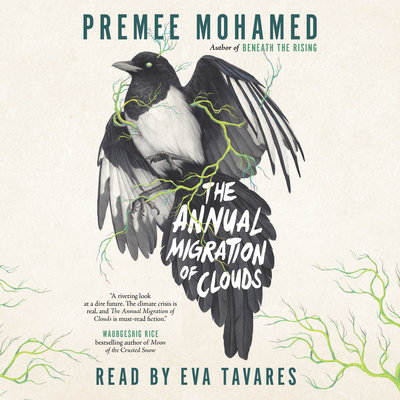 The Annual Migration of Clouds by
The Annual Migration of Clouds by  Escape Rating A-: I picked up this book because I read the sequel to this,
Escape Rating A-: I picked up this book because I read the sequel to this,  What You Are Looking For Is in the Library by
What You Are Looking For Is in the Library by  As much as I enjoyed the narration, which I very much did, it’s the stories themselves that give the collection its charm, as was true in similar books such as
As much as I enjoyed the narration, which I very much did, it’s the stories themselves that give the collection its charm, as was true in similar books such as 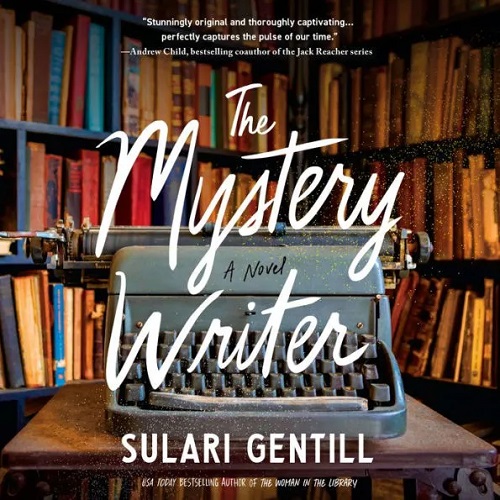 The Mystery Writer by
The Mystery Writer by  Escape Rating B-: I picked this up because I LOVED the author’s previous book,
Escape Rating B-: I picked this up because I LOVED the author’s previous book, 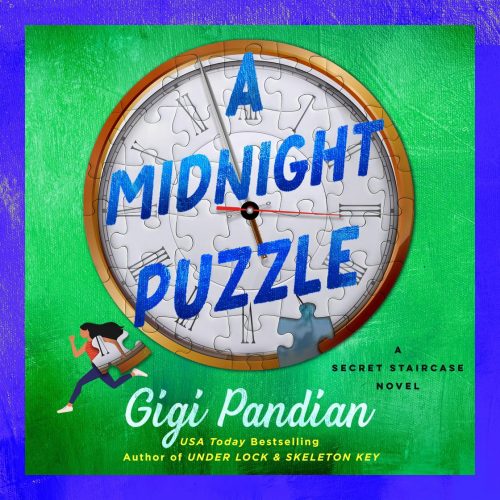 A Midnight Puzzle (Secret Staircase Mystery, #3) by
A Midnight Puzzle (Secret Staircase Mystery, #3) by 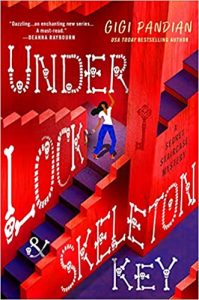 After her adventures – and misadventures – in the first two books in the
After her adventures – and misadventures – in the first two books in the 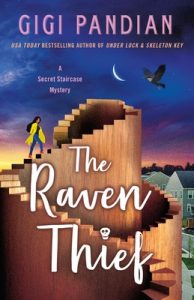 Escape Rating B: I have to admit that I went into this third entry in the series with a bit of trepidation after the muddle of
Escape Rating B: I have to admit that I went into this third entry in the series with a bit of trepidation after the muddle of  Glory Be (Glory Broussard Mystery, #1) by
Glory Be (Glory Broussard Mystery, #1) by 
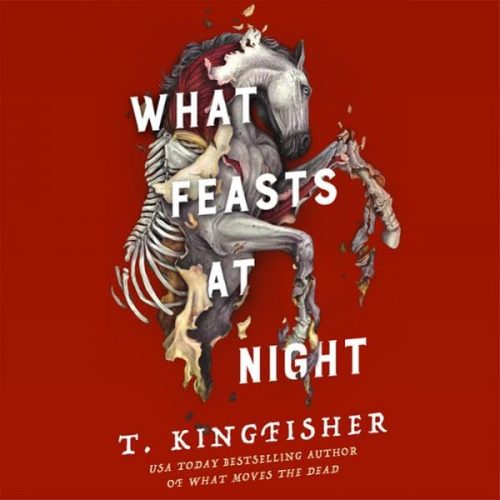 What Feasts at Night (Sworn Soldier, #2) by
What Feasts at Night (Sworn Soldier, #2) by 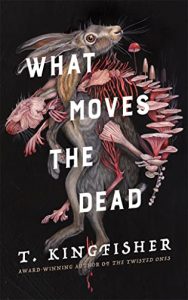 Escape Rating A-: I’m not sure whether to say that What Feasts at Night isn’t quite as creepy as
Escape Rating A-: I’m not sure whether to say that What Feasts at Night isn’t quite as creepy as 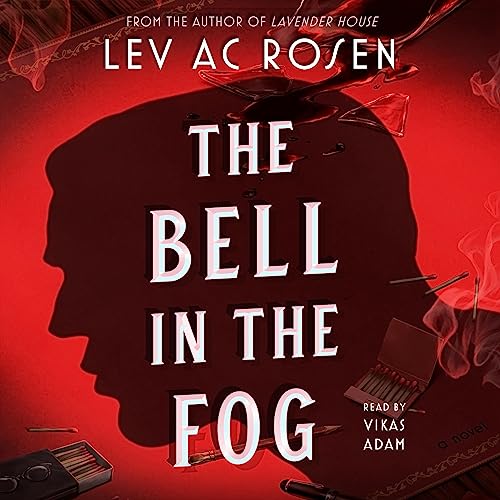 The Bell in the Fog (Evander Mills, #2) by
The Bell in the Fog (Evander Mills, #2) by  Andy needs the case because he needs the money. Business for an ex-cop turned P.I. isn’t good when EVERYONE remembers that he used to be a cop – the people who hassle and roust and beat up guys just like them Just like him, which makes the betrayal that much worse.
Andy needs the case because he needs the money. Business for an ex-cop turned P.I. isn’t good when EVERYONE remembers that he used to be a cop – the people who hassle and roust and beat up guys just like them Just like him, which makes the betrayal that much worse.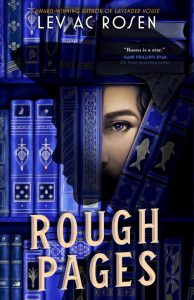 And what that means for anyone trying to just live their life the best they can where that life has already been declared a criminal act.
And what that means for anyone trying to just live their life the best they can where that life has already been declared a criminal act.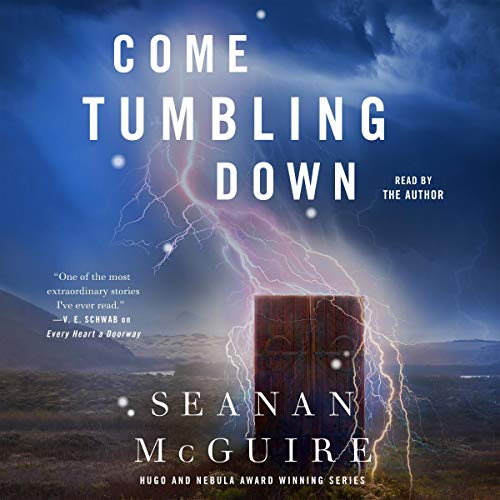 Come Tumbling Down (Wayward Children, #5) by
Come Tumbling Down (Wayward Children, #5) by 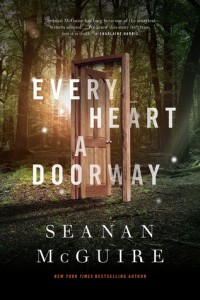 I’ve been winding my way through Seanan McGuire’s
I’ve been winding my way through Seanan McGuire’s 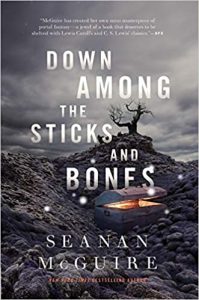 Jack is in dire straits when she returns to the school, and she needs the help of the only friends she can trust to see that, in spite of appearances, she’s still Jack even though she’s in her twin sister Jill’s body. They are the only people who know her well enough to understand that her OCD will not allow her to just adapt to living her life in the unclean thing that murdered her mentor – even if Jill’s full, entire, complete and utterly nefarious plot is to destroy both her sister Jack and the balance that keeps The Moors relatively safe and functional for the human population that was born to a world where vampires contend with mad scientists and drowned gods prey upon ships and shorelines, where the sun only rises behind thick clouds and lightning storms happen whenever the Moon wills it so.
Jack is in dire straits when she returns to the school, and she needs the help of the only friends she can trust to see that, in spite of appearances, she’s still Jack even though she’s in her twin sister Jill’s body. They are the only people who know her well enough to understand that her OCD will not allow her to just adapt to living her life in the unclean thing that murdered her mentor – even if Jill’s full, entire, complete and utterly nefarious plot is to destroy both her sister Jack and the balance that keeps The Moors relatively safe and functional for the human population that was born to a world where vampires contend with mad scientists and drowned gods prey upon ships and shorelines, where the sun only rises behind thick clouds and lightning storms happen whenever the Moon wills it so.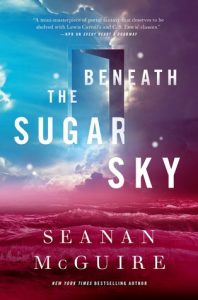 Escape Rating A-: The
Escape Rating A-: The 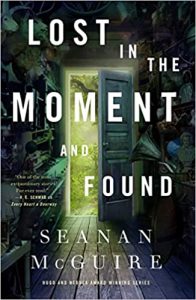 One of the core tenets of the whole, entire,
One of the core tenets of the whole, entire, 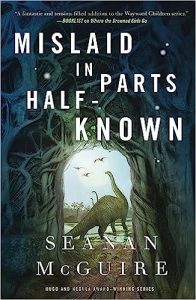 So, on the surface there’s a story about vampires and mad scientists set in a place that the great horror movies might have used for their inspiration – if not their actual setting. Underneath that there’s a deeper story about balances of power and how devastating it can be when those balances become unbalanced. And the story of one heroine who is willing to throw her own body into the breach – along with her sister’s corpse – to preserve that balance at truly any and every cost.
So, on the surface there’s a story about vampires and mad scientists set in a place that the great horror movies might have used for their inspiration – if not their actual setting. Underneath that there’s a deeper story about balances of power and how devastating it can be when those balances become unbalanced. And the story of one heroine who is willing to throw her own body into the breach – along with her sister’s corpse – to preserve that balance at truly any and every cost.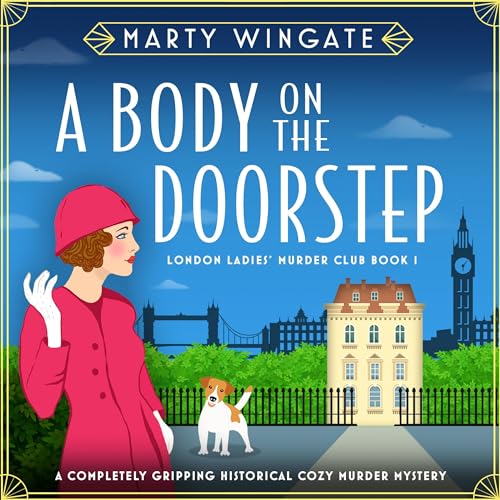 A Body on the Doorstep (London Ladies' Murder Club, #1) by
A Body on the Doorstep (London Ladies' Murder Club, #1) by  I listened to this one for about half its length, and the narrator gave Mabel just the right voice for her inner thoughts and outer expressions. But I got so caught up in the mystery itself that I had to see whodunnit and switched to text because it’s a)faster and b) a whole lot easier to thumb to the end. Although I resisted that temptation by simply finishing in one sitting.
I listened to this one for about half its length, and the narrator gave Mabel just the right voice for her inner thoughts and outer expressions. But I got so caught up in the mystery itself that I had to see whodunnit and switched to text because it’s a)faster and b) a whole lot easier to thumb to the end. Although I resisted that temptation by simply finishing in one sitting.